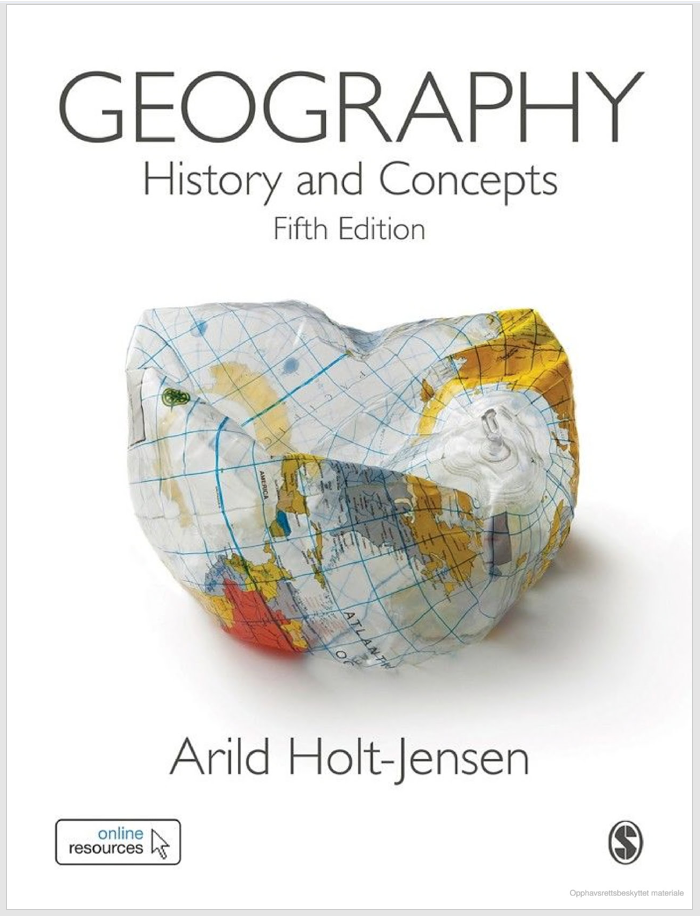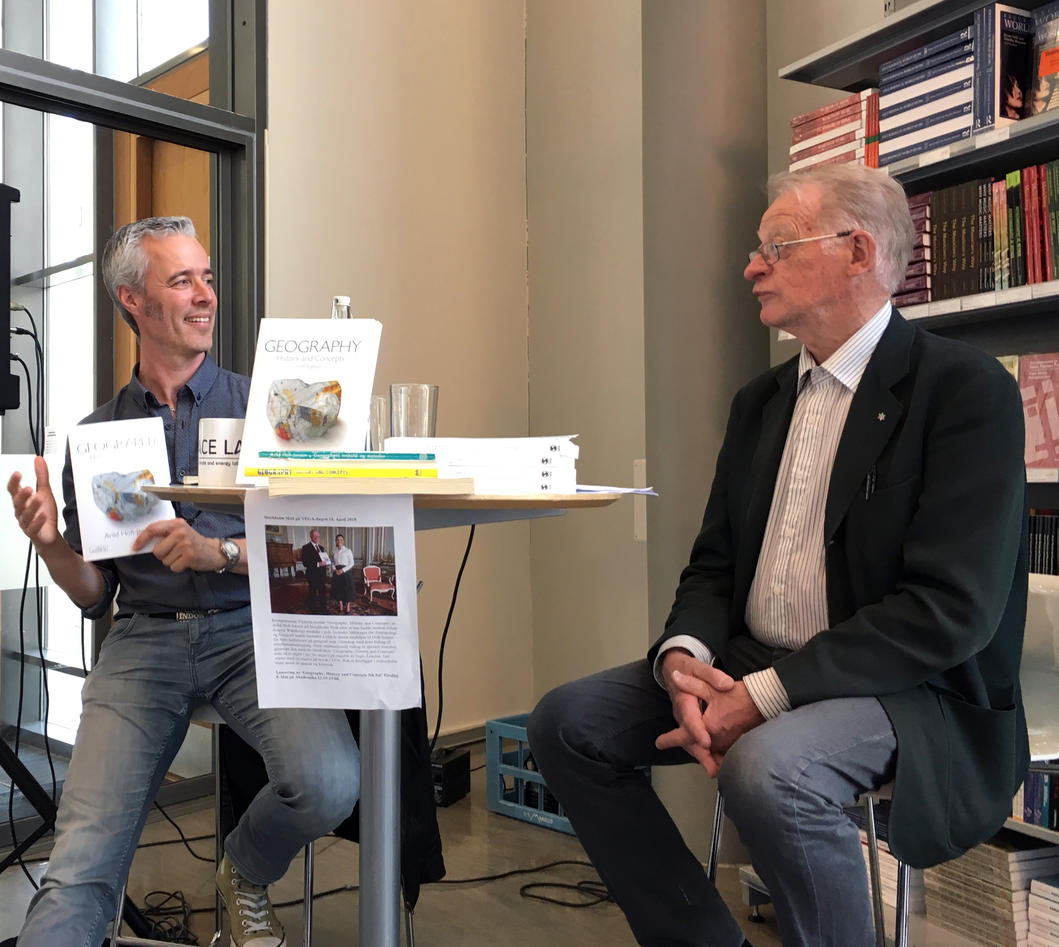An intellectual journey in geography
"Geography - History and Concepts" is much more than a history book. It originates primarily from the desire to develop a practical understanding of the identity of Geography.

Main content
Put another way: it illustrates perfectly how geography as a science can help us as practitioners in our daily endeavours as lecturers, supervisors, teachers, planners, bureaucrats, politicians or consultants.
A real tool box
The book’s subtitle is geographical theories and methods. Both theories and methods are tools for us to use as practitioners. In many ways, the book works as a travel diary of an intellectual journey. With Arild's long experience covering half a century, this means that reading the book will provide the reader with a comprehensive insight into the rich scientific history of the post-war period. From regional geography, through the quantitative revolution and model thinking, to critical theory, poststructuralism and until today's shattered collage of concepts. Arild Holt-Jensen is juggling all of them and, I will assert, he does it in a way that both creates debate and enthusiasm for geography.
An inclusive, interdisciplinary scholar
A significant part of Arild's skills as a geographer is his inclusive attitude. He is an interdisciplinary scholar in so many ways, and he practices this by inviting colleagues from far and near into his work. We are many who have been fortunate to contribute to this piece, and personally I am very grateful to be given the opportunity to contribute with my own research in the textbook I even read as a young student in the 90's.
Important parts of the Bergen environment of geographers have highlighted the new parts of the book: Gidske Andersen on geographic information systems, Benjamin Robson on remote sensing, Ole Reidar Vetaas on ecosystem services and biogeography, Tor Halfdan Aase on religious conflicts , Jostein Bakke on the reconstruction of glacier variations, Håvard Haarstad on low-urban development, and myself on the use of assemblage theory in the contested energy spaces of Canada. All of us have contributed with practical examples of how to use recent geographical theories and concepts in research.
Honoured in Sweden
Two weeks ago, Arild Johan received Johan August Wahlberg's medal in gold for his efforts for geography as a discipline. It is a prize awarded by the Swedish Society for Anthropology and Geography for his holistic view of geography as science and its contribution to social planning. Here, this book is mentioned as a particularly important contribution.
This book should become a core text for all students getting to grips with either the history of geography or new ideas and theories in contemporary human geography. It is clear, comprehensive and intellectual stimulating.
Simon Tate, Senior Lecturere in Human Geography, Newcastle University.

